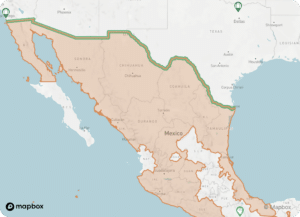Officials remain mindful of the possible return of violent cost of living protests that saw former president Gotabaya Rajapaksa’s 2022 flight from the country.
Navigating through pan-European challenges
Europe is navigating change, marked by developments in the United Kingdom (UK) and France. In the UK, the Labour Party won its first landslide victory since 2010, suggesting a more pro-EU stance, though major policy shifts are unlikely and the country will remain outside the bloc. In France, a hung parliament prompted President Emmanuel Macron to appoint a right-leaning government despite the left-wing coalition winning the most seats. And in 2025, Germany will hold federal elections amid a surge in anti-migrant populism and persisting economic doldrums. Continued unrest and protests across the continent, driven by various grievances, including discontent over Middle East foreign policy, police violence and austerity measures, are certain to continue. These elections, and the 2027 French presidential contest, are seen as a critical test of the longstanding “firewall” since World War II aimed at keeping far-right parties out of governments. The reelection of US President Donald Trump also presents new challenges, including possible downgrading of defence ties like NATO and closer US-Russia relations at the EU’s expense.
Mexico’s security dilemma
President Claudia Sheinbaum’s administration faces an unprecedented security crisis, following the most violent six-year period in Mexico’s recent history, with 199,619 reported deaths from cartel clashes and inter-communal violence. Her security strategy largely mirrors the plan implemented by former president López Obrador, focusing on bolstering social programmes to provide alternative pathways for vulnerable groups frequently targeted by organised crime for recruitment. Security forces will prioritise intelligence-led violence prevention, facilitated by the newly established Undersecretariat of Police Intelligence and Investigation to increase cooperation among state and federal authorities. Though optimistic about her security plan, the president acknowledges that its tangible effects will not be immediate. Cooperation with the United States (US) will also be critical as US politicians increasingly call for direct US military action against the cartels, with or without Sheinbaum’s cooperation.

